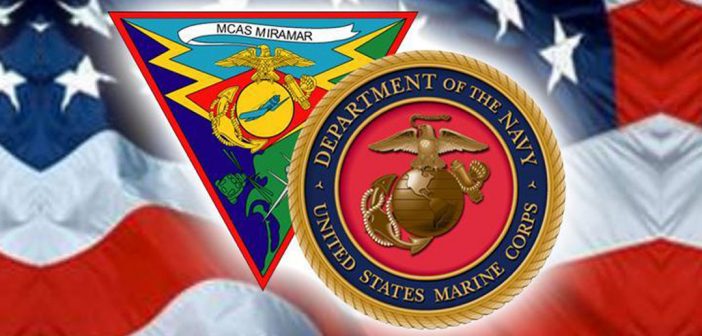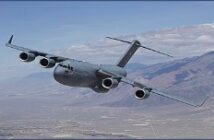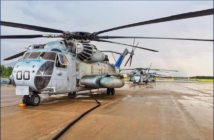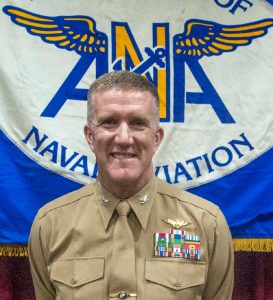 The Squadron was honored to host Colonel Jason G.Woodworth, Commanding Officer of MCAS Miramar. The Colonel took command of Miramar in August 2015. Colonel Woodworth began his presentation by speaking about the role of the USMC in today’s challenging environment. He noted the Corps is made better by its members and others.
The Squadron was honored to host Colonel Jason G.Woodworth, Commanding Officer of MCAS Miramar. The Colonel took command of Miramar in August 2015. Colonel Woodworth began his presentation by speaking about the role of the USMC in today’s challenging environment. He noted the Corps is made better by its members and others.
The Colonel discussed the composition of today’s service personnel of young men and women and noted that they are better with technology which is a vital part of the service. The role of media and technology are understood to a greater degree by today’s personnel than previous generations.
The challenge for today’s service requires change. Change is good and the tactics and techniques are developed to meet this change. As such we are stronger due to this change.
It is good to recognize the history of Naval Aviation. It is also important to bridge the old with the new. While the image of past generations should not be forgotten, it is equally important to note that times are changing and there is a need in the current climate to embrace the change.
Speaking about the current job all service members hold, the Colonel noted that roles are vital at all levels, whether being behind the boat on a night landing or working aboard. This is the equalizer and provides a meaningful contribution.
The Colonel referenced comments made by General Robert Neller, Marine Corps Commandant when he presented his thoughts on the Marine Corps. They need to have humilty, be opened minded and adapt to events and have a burning desire to win.
When speaking about the future, the Colonel noted that, from the first, the US government actions and weapons technology was driven by the need to defend the nation. Since 1991 there has been a fundamental shift in the drivers, and business is driving innovation, but technology will drive the future.
Colonel Woodworth noted that he is responsible for the operation of some 250 aircraft and 17000 Marines and their families located at Miramar, San Diego, Camp Pendleton in California and operations in Yuma, Arizona.
As part of his presentation, the Colonel took questions from the audience. It began with a question regarding the future of the military. In responding to this question, his reply noted that with consolidation of the military including local base closures, the LA military footprint will continue to change, however, there will still be a need to have the Naval Weapons Station and Marine Corps base. Change is still coming.
A response to a question regarding service readiness, hisreply indicated it is tough right now. The ramp up for the F18, CH53, AV-8B Harrier and other aircraft is a challenge. Ramp up is a 4-5 year period and the F18 dating back to 1981 will still be flying in 2030.
Morale has been tough on the aviation side. Aircraft safety is primary, however, maintenance man-hours has doubled in the last 5 years. While aviation will continue to challenge the service, infantry and spec ops has a good morale record.
Regarding replacement of existing inventory through newer resources, the new Joint Strike Fighter(JSF) will replace the EA6B and not the F18. The addition of drones and other approaches will answer the need for jammer aircraft. Technology will continue to play a larger role moving forward..
When asked to compare the NAS Lemoore to MCAS Miramar, the Colonel noted that Miramar is at capacity with 200—250 aircraft while Lemoore has 300+. With MCAS Miramar being at capacity and not currently capable to become a joint service, Navy/Marine facility will continue to fill the current role and one that the city of San Diego wants to maintain. There are no current plans to relocate operations to MCAS Yuma.
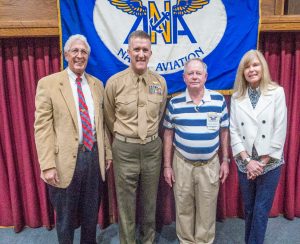
C.O. Tim Brown(L), thanks Col Jason Woodworth((CL)
for his MCAS Miramar presentation, X.O. Vince van
den Brink(CR) and OPS Cindy Macha® join in.
While the creation of a joint service base operation b y US forces in Japan has b e e n successful, there are no current plans to create a similar operation at Miramar or move Miramar operations. The Colonel noted that he has been stationed in Southern California with all assignments for 15 years. He is primarily an F-18 pilot.
The Colonel concluded his remarks commenting on a question comparing the F-18 to the F-35. He described the 1978 technology of the F-18 as a dial phone compared to the F-35 as a cell phone. Both capable for their respective roles.

